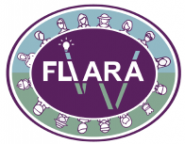Across Europe, the contributions of women in agriculture and rural development are increasingly recognised as fundamental to sustainable regional growth. The FLIARA project is at the forefront of efforts to create a supportive ecosystem that empowers women as key drivers of progress in these vital sectors.
FLIARA, funded by the Horizon Europe programme, is dedicated to identifying, showcasing, and promoting the innovative work of women in agriculture and rural development. Operating with a consortium of fifteen public and private organisations across ten European countries and led by the University of Galway, Ireland, the project focuses on bringing to light diverse women-led innovations, ranging from farm-based enterprises to new rural business models.
A significant aspect of the project’s methodology has been the implementation of its Community of Practice (CoP) events. These structured gatherings have served as platforms for knowledge exchange, experience sharing, and the cross-fertilisation of ideas among participants. FLIARA has had the opportunity to speak with members of FLIARA’s Stakeholder Advisory Board, gaining direct insights into how this project is fostering recognition and support for women in agriculture and rural areas.
Teresa Roche, Chair of the IFA Farm Family & Social Affairs Committee in Ireland and a representative on the FLIARA Stakeholder Advisory Board, provided perspective on the project’s impact. “The FLIARA CoP has highlighted some of the notable challenges facing women in agriculture today, including access to finance, generational renewal, and digitalisation,” Ms. Roche stated. “Training in financial management, innovation, and technology is essential to ensure that women possess the confidence and skills to assume leadership roles in the sector. I believe the FLIARA project will serve as an important model for the next generation of female farmers, facilitating new opportunities, funding access, and stronger policy support at the EU level. By cultivating local ambassadors, it will provide valuable support for future female leaders in agriculture.”
This view was complemented by Valentina Carta, technologist at the Council for Agricultural Research and Economics–Research Centre for Agricultural Policies and Bioeconomy (CREA-PB) in Italy and a FLIARA SAB member. “The FLIARA CoP offered a valuable space for knowledge transfer and experience-sharing, enabling a true cross-fertilisation of ideas,” Ms. Carta explained. “Beyond discussions, it reinforced the importance of establishing robust networks and support systems for women innovators in rural areas. My advice to young women aspiring to leadership in agriculture is to maintain passion, continue learning, and cultivate strong local networks—because collaboration is key to achieving a lasting impact. While initiatives exist to support women in rural areas, further efforts are necessary to truly empower them at the local level, both in Italy and across Europe.”
FLIARA’s approach acknowledges that innovation encompasses more than financial considerations. Valentina Hažić, a business consultant, farmer, and fellow member of the FLIARA Stakeholder Advisory Board, emphasised the critical role of non-financial support. “While financial constraints are frequently cited as a significant challenge for women in agriculture, emotional support from family, community, and networks can be equally crucial,” Ms. Hažić highlighted. “Sometimes, the courage to initiate a project and the backing of a strong support system can be decisive. The FLIARA CoP is already playing a key role in connecting and encouraging women to pursue their ideas.”
Ms. Hažić further underscored the interdependence between grassroots initiatives and policy frameworks. “Beyond networking, supportive policies are essential in determining the extent to which these ideas can be implemented. When policy frameworks align with practical initiatives, such as those fostered by FLIARA, they can become a driving force for tangible change. My advice to young women is to be bold, trust their intuition, and not allow obstacles to impede their progress. Challenges will arise, but the key is to be creative in addressing them and to persist.”
The project’s commitment to informing policy is evident. FLIARA is developing comprehensive policy proposals and practical tools, aiming to ensure that the knowledge derived from its 200 identified women-led innovations across 10 countries directly contributes to EU and national rural policies. This includes the existing FLIARA Toolkit designed to provide women and key stakeholders with accessible resources for knowledge transfer and capacity-building.
As Europe addresses contemporary challenges, the FLIARA project demonstrates a concerted effort to leverage the capabilities of women in shaping a more sustainable, inclusive, and resilient rural future. The project’s work is focused on both acknowledging existing innovations and actively cultivating an environment where future female leaders in agriculture can thrive and contribute meaningfully.



